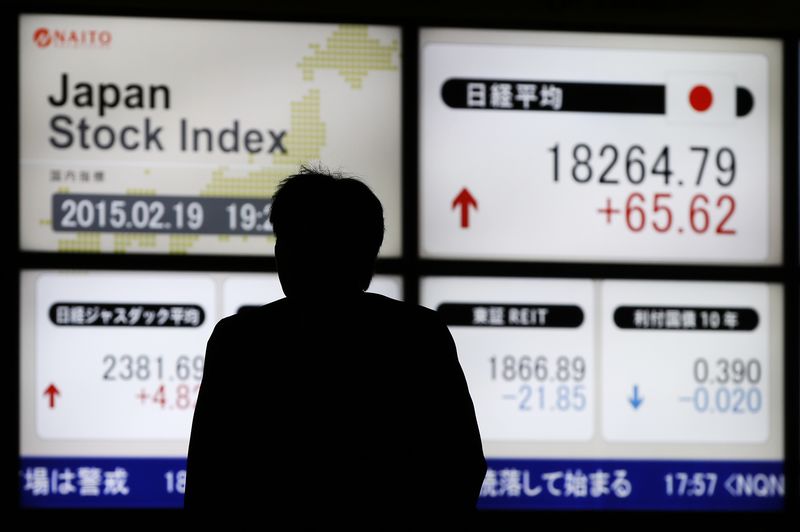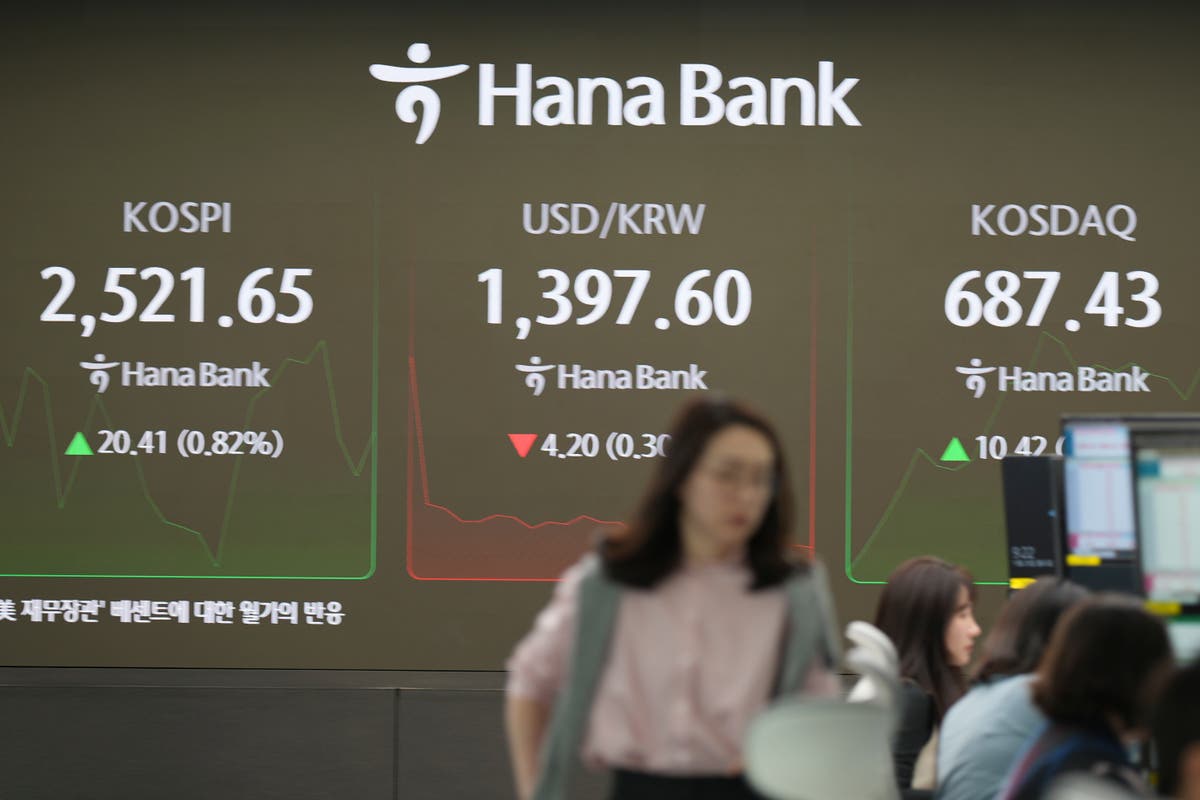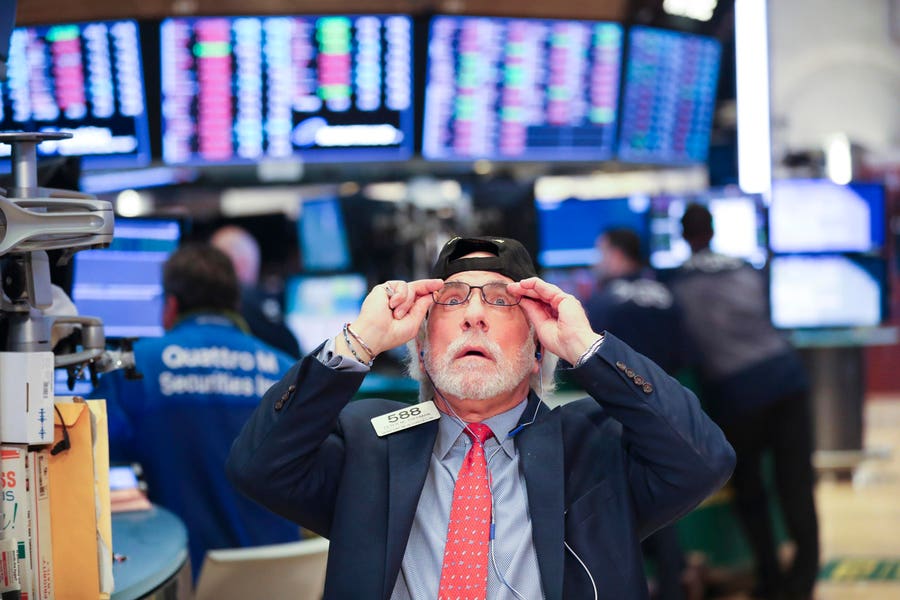(Bloomberg) — A month after the stock market was rocked by a worse-than-expected inflation report, investors are fearing a reprise when the latest data arrives on Tuesday.
Despite last week’s sideways price action, the S&P 500 Index is on a tear, climbing in 16 of the past 19 weeks on the back of improving earnings outlooks and a resilient US economy. The broad equities benchmark hasn’t had a better run than this since 1964. But some of those gains could be undone if the monthly consumer price index reading continues to show inflation remaining stubbornly sticky.
“The economic data is starting to raise more questions than answers over just how long it will take the Fed to gain more confidence about inflation improving,” Thomas Martin, senior portfolio manager at Globalt Investments, said over the phone. “Stocks have had a strong year so far, but have they come too far too fast? Probably.”
For a sense of what’s on the line, look at trading last week. The S&P 500 rallied 1% Thursday when Federal Reserve Chair Jerome Powell said in his testimony before the Senate that the central bank is “not far” from being ready to cut interest rates. The same day, Powell’s European counterpart Christine Lagarde said the European Central Bank could start reducing rates as soon as June, sending the Stoxx Europe 600 Index up 1.3%. To traders who’ve been obsessed with earnings of late, it was a reminder of how powerful the prospect of rates cuts is.
While the S&P 500 has fallen on just four CPI reporting days in the past 12 months, volatility is picking up in those sessions this year. Over the past six months, the S&P has moved about 0.8% in either direction on the day CPI has been released, according to data compiled by Bloomberg. That’s the most since April and up from less than 0.5% in September.
With Fed officials in a blackout period ahead of their meeting on March 19 and 20, traders are looking for clues about the health of the US economy and the central bank’s path from here. In addition to CPI, data on producer prices, retail sales and consumer sentiment are all due before policymakers meet.
“We’ll likely see more volatility until more inflation figures improve,” Martin said.
Financial markets are bracing for the possibility that the Fed may keep borrowing costs higher for longer than hoped, putting a May rate cut in doubt. A separate report Friday showed that employers continue to create jobs without spurring a surge in wages, which may hinder the disinflationary process.
Many traders have fresh memories of the last CPI print on Feb. 13, which showed core US consumer prices climbed by the most in eight months. That sent the S&P 500 down 1.4% — the gauge’s worst CPI-day since September 2022, according to data compiled by Bloomberg.
The reaction demonstrated how the market is growing more sensitive to inflation reports once again. Last year, stocks had relatively muted reactions to consumer-price signals as inflation ebbed.
“CPI data has mostly improved in recent months, though the rate of decline has slowed somewhat,” said Michael Sheldon, executive director at RDM Financial Group. “Investors are likely to remain more optimistic that inflation is slowing, though it certainly may take longer than some had wished.”
In his Congressional testimony last week, Powell reiterated that the central bank is in no rush to cut rates until policymakers are convinced they’ve tamed inflation. The economy and labor market remain strong, meaning the Fed has room to wait for clearer evidence that inflation is headed back to policymakers’ 2% goal before cutting rates.
Tuesday’s CPI report is forecast to show a 0.4% rise in prices from January to February, with the main headline inflation figure expected to be unchanged from the prior month. Core CPI, which strips out volatile food and energy components and is seen as a better underlying indicator than the headline measure, is projected to rise 0.3% month over month and climb 3.7% from a year earlier.
“It’s impressive that stocks shook off the hotter-than-expected inflation reading last month,” said Yung-Yu Ma, chief investment officer at BMO Wealth Management. “But if there are multiple months in a row of unfavorable data, that will test the stock market’s ability to look past this and further call into question whether this year’s rally will need to consolidate soon.”
–With assistance from Elena Popina.
Most Read from Bloomberg Businessweek
-
How Apple Sank About $1 Billion a Year Into a Car It Never Built
-
The Battle to Unseat the Aeron, the World’s Most Coveted Office Chair
-
How Microsoft’s Bing Helps Maintain Beijing’s Great Firewall
©2024 Bloomberg L.P.

















